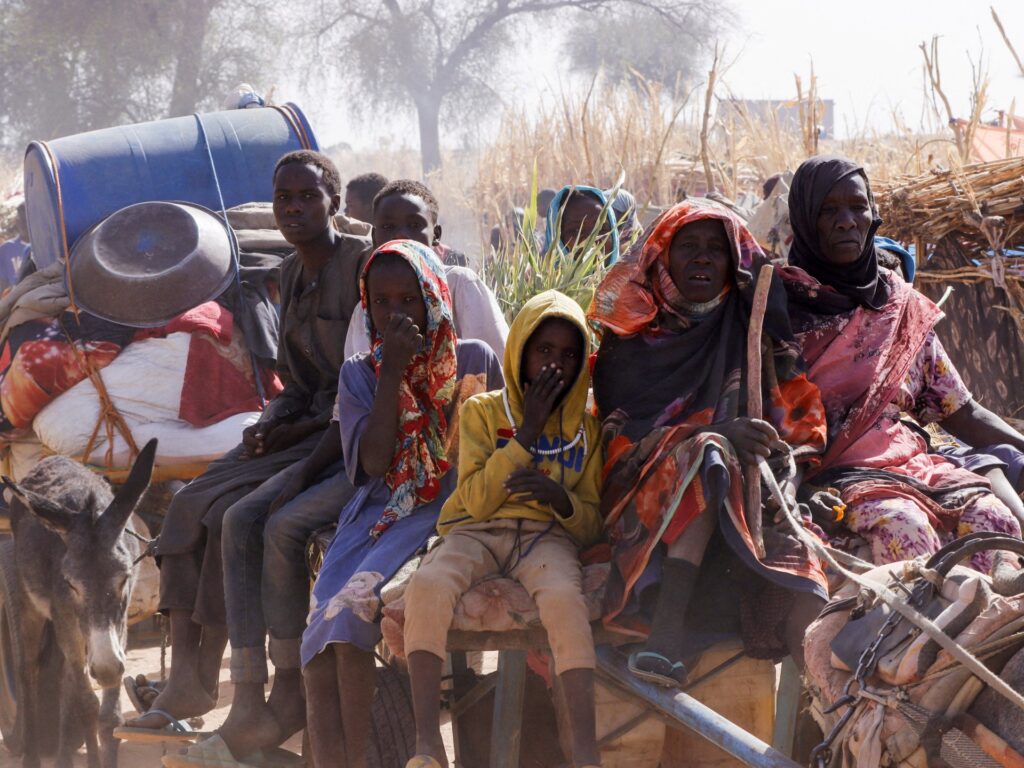Displacement has surged in el-Fasher as paramilitary Rapid Support Forces (RSF) intensified attacks on North Darfur’s capital, according to a United Nations report.
More than one million people have fled el-Fasher since the start of Sudan’s civil war, with the exodus dramatically accelerating as the RSF has increased attacks following its loss of control of the Sudanese capital, Khartoum, earlier this year, according to data published by the International Organization for Migration (IOM) on Sunday.
Recommended Stories
list of 3 itemsend of list
The number of internally displaced people (IDP) sheltering in el-Fasher plummeted 70 percent, from approximately 699,000 to 204,000, between March and September, the IOM’s Displacement Tracking Matrix says.
El-Fasher’s overall population has now shrunk by 62 percent from its pre-war level of 1.11 million to just 413,454 people.
Sharp decline
The sharp decline follows the recapture of Khartoum by the Sudanese Armed Forces (SAF) in late March, after which the RSF pivoted to consolidating control over Darfur. El-Fasher represents the army’s last major urban stronghold.
April has been one of the most violent months this year, with nearly 500,000 people – representing almost all of the camp’s population – displaced from Zamzam IDP camp in a single incident.
The Sudanese army has been battling the RSF for control of the country since April 2023, triggering what has widely been described as the world’s largest humanitarian crisis.
Millions have fled to neighbouring countries, with Egypt and Chad absorbing the majority.
Cross-border movement into Chad surged by 45 percent year-on-year in 2025, reaching nearly 1.2 million people.
Those who are unable to leave the country have been internally displaced to surrounding areas. The IDP population in the nearby Tawila locality more than doubled from 238,000 to 576,000 between March and September.
The RSF has maintained a siege of el-Fasher since May 2024, cutting off supply routes and trapping an estimated 260,000 civilians, including 130,000 children, without sustained humanitarian access for more than 16 months.
The Yale Humanitarian Lab, which has been monitoring the war, published satellite imagery which it said showed earthen berms built by the RSF almost encircling the city, helping to enforce the siege and preventing the movement of supplies and people.
Recent weeks have seen escalating violence. A September drone attack on a mosque during Friday prayers killed more than 70 worshippers, prompting the UN to raise the alarm about the possibility of “ethnically motivated” killings if the city falls to the RSF.
The RSF has been widely reported to have targeted non-Arab populations across Darfur, with their fighters frequently filming themselves shouting racial slurs at their victims.
In early September, UN investigators accused both sides of committing atrocities. They said the RSF is committing “murder, torture, enslavement, rape, sexual slavery, sexual violence, forced displacement and persecution on ethnic, gender and political grounds”.
Meanwhile, the humanitarian situation continues to worsen.
Among households surveyed in August, 87 percent reported needing healthcare, but 78 percent were unable to access treatment due to destroyed facilities, insecurity, and lack of medicine.
Food security has deteriorated sharply, with 89 percent of households facing poor or borderline food consumption.
Since the siege began, more than 1,100 grave violations against children have been verified in el-Fasher, including over 1,000 children killed or maimed, according to UNICEF.
The battle for el-Fasher has become central to the broader war’s trajectory.
Key city
The RSF controls most of western Sudan, including nearly all of Darfur, while government forces hold the north and the east.
In July, the RSF and its allies announced a widely condemned “parallel government” in the country, underlining the deep political divide which has become more entrenched in the country.
El-Fasher’s potential fall would give the paramilitary force control over virtually the entire Darfur region.

